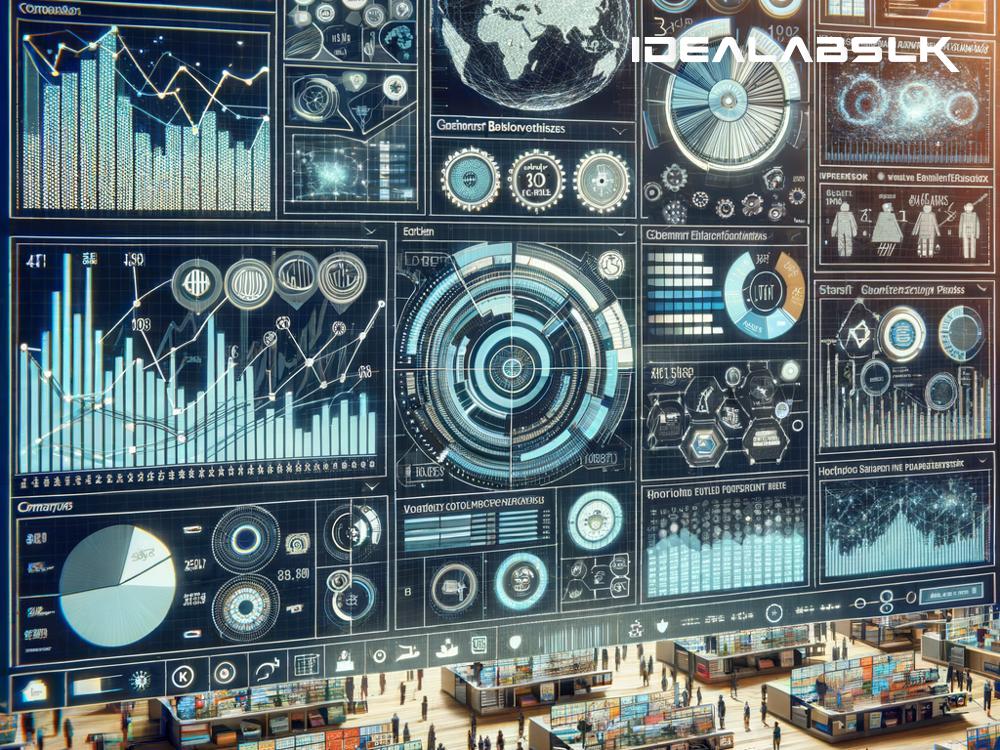How Machine Learning Transforms Predictive Analytics in Retail
In the fast-paced world of retail, staying ahead of the curve is not just a strategy, but a necessity. That's where machine learning and predictive analytics join hands to revolutionize how retailers understand their customers, forecast trends, and make decisions that keep their businesses thriving. But what exactly are these technologies, and how are they turning the retail industry on its head? Let's break it down into simpler terms.
Understanding the Building Blocks
First things first, let's define our key players. Machine Learning is a subset of artificial intelligence that allows software applications to become more accurate in predicting outcomes without being explicitly programmed to do so. Think of it as teaching a computer to learn from data, much like a student learns from textbooks, to make its predictions and decisions.
Predictive Analytics, on the other hand, involves using data, statistical algorithms, and machine learning techniques to identify the likelihood of future outcomes based on historical data. It’s like using your past exam performances to predict how well you’ll do in your next test.
When combined, these technologies offer a powerhouse of benefits to retailers. Let’s dive into how.
Inventory Management
Machine learning algorithms can analyze years of sales data, patterns of purchase, and even take into account factors such as seasonality, holidays, and economic conditions. With this information, retailers can predict what products are going to be in demand, ensuring that stock levels are optimized. No more empty shelves or overstocked items gathering dust!
Personalization
Ever wondered how your favorite online store seems to know exactly what you’re looking for? Welcome to the world of personalized shopping experiences. Machine learning algorithms sift through your browsing history, purchase records, and even your interactions with the website or app. This data helps predict products you might like, creating a personalized shopping journey just for you. This not only enhances your shopping experience but also boosts sales and customer loyalty for retailers.
Price Optimization
Setting the right price for products is more complex than you might think. Retailers must consider competitors’ pricing, demand, market conditions, and more. Machine learning comes to the rescue by analyzing these vast datasets to recommend the optimal pricing strategies. This means retailers can adjust prices in real-time, ensuring they remain competitive while also maximizing their profits.
Enhanced Customer Service
Machine learning doesn’t just stop at improving sales and inventory; it also revolutionizes customer service. Chatbots powered by machine learning can handle inquiries 24/7, ensuring customers receive immediate responses. These bots learn from each interaction, becoming more efficient over time. Moreover, machine learning can predict which customers might face issues or have questions, allowing for proactive service measures.
Forecasting Trends
Retail is not just about managing what’s in demand now but also predicting future trends. Machine learning analyzes current fashion trends, social media, and even global economic indicators to predict what products will be hot in the upcoming seasons. This allows retailers to stay ahead of the curve, ensuring they capture market interest at the right time.
Reducing Fraud
Fraud can be a significant issue in retail, but machine learning is a powerful ally in combating it. By analyzing transaction data, machine learning can detect patterns indicative of fraudulent activities. It can identify unusual transactions, such as a high volume of purchases in a short period, alerting retailers to potential fraud. This proactive approach helps in minimizing losses and maintaining customer trust.
Simplifying Returns
Returns are an inevitable part of the retail process but managing them can be a nightmare for both retailers and customers. Machine learning can streamline this process by predicting the likelihood of returns based on factors like purchase history, product type, and customer feedback. This information can help retailers manage their inventory better and even tailor their return policies to minimize losses.
The Bottom Line
The retail landscape is evolving at an unprecedented pace, driven by the advances in machine learning and predictive analytics. These technologies are not just fancy buzzwords but are foundational to creating a more personalized, efficient, and profitable retail experience. They empower retailers to understand their customers better, predict future trends, and make informed decisions that drive growth.
For retailers willing to embrace these technologies, the future is bright. The fusion of machine learning and predictive analytics is reshaping the retail industry, making it more dynamic, customer-centric, and resilient. As we move forward, this synergy will continue to unlock new possibilities, paving the way for a retail revolution that benefits both retailers and their customers.

